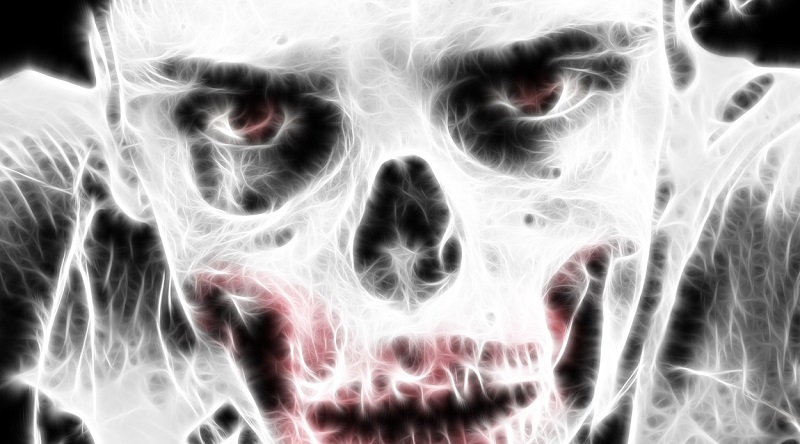There is a sensation common to humanity, but it is a sensation not everyone enjoys. Still less appreciate it. Like its emotional counterparts, it has many names. But we know not the power of its name until we greet it face to face. It has a name we’d rather not utter, and it is its proper name. But I believe that the most sensible thing a person can do is call a thing what it is rather than what it is not. For if we call a thing what it is not, we run the risk of misunderstanding it; but if we call a thing what it is, we run the greater risk of actually understanding it.
I have Fear in mind. Many folks are fearful of many things. For some, fear is intentionally objective. By ‘intentionally objective’, I mean the fear is about a certain object. Some examples of this would be fear of clowns, spiders, monsters, and so on. For others, fear is about an event or some meaningful hypothetical situation. Contemplating various ways people might die, for example: fear to be buried alive, to drown, to fall to one’s death from great and harrowing heights, to quietly and cozily die in their sleep. There is another species of fear that is primarily psychological. It is fear stirred by small happenings, things or events or words that seem just a bit off. The world begins to bend and burn and belch in ways that engender suspicion. One might say the fear is that the world has turned on its head and turned against them. The world has been inverted, and they fear they’ll be shaken out. It messes with their head because it messes with their world.

Psychological horror games are a convenient example of the latter kind of fear, and they are the subject of this article. My colleague Josh Patton penned an article on what generally makes a good horror game. I recommend his piece. It offers a much needed critique of modern-day horror games that reduce fear to a stale mechanic. Some of his points may resurface here, so I am indebted to Mr. Patton for his insights. For this article, I wish to focus on some aspects of psychological horror games that, while irrational and unhealthy in appearance, are perfectly rational and healthy for people.
In the first place, psychological horror games generally affirm a sense of powerlessness in the player. In psychological horror games, the rules of play themselves seem to come alive. The screen softly fades to black. Then back to normal. The volume on the screen rises. The game gets louder. And louder. And louder. Until the screen finally shuts off, and the player sits in a quiet, mental panic over whether he is playing the game or the game is playing them. The point is, that the player, in fact, has very little power over these events. They did not consent to the game’s debugging itself. But the game is still on, the disc still whirring quietly in the console. The pregnant tension almost taunts the player with an immaterial gesture. Your move, it says. It is healthy for a game to remind the player that they are merely participants in a pre-created world with its own set of laws and rules. It is an exercise in humility to set oneself aside and let the game do its work. In a sense, psychological horror forces the player into an ultimatum: surrender or die. The player does not get to decide where and when the game resets itself, deletes their save file, or rumbles their controller. Among some genres that allow the player to do what they will when they like (The Sims and Skyrim, for instance), psychological horror games like Eternal Darkness: Sanity’s Requiem sit among the genres that allow the player no such luxury. It seems healthy, then, for players to experience a kind of game that allows them little freedom, little power over the game itself, for it is, in the end, a moral choice to surrender to the game, surrender to the nightmare.

Second, psychological horror games engender a sense of suspicion about the real world. This is an effect of the game’s mood, or the sense with which it leaves the player when they stop playing. The little things, the ‘subtleties’ as Mr. Patton calls them, conduce to eccentric skepticism. Small rappings from between the walls. The sound of breathing. A giggle. A distant, feminine scream. All of these elements suggest not only a loss of control but a façade. The game world is not as it seems, and when the player stops playing the game, they are generally a little more suspicious of their own world. They might watch the walls more closely, gasp when the bushes rustle, or sleep with a dark sense that their bed may close on them like the nimble jaws of a Venus flytrap. This is perhaps the most healthy and rational aspect of psychological horror games. The experience prompts imaginative activity that tests the strength of one’s skepticism about the world and how it’s supposed to work. It might be that the world we thought we knew was only putting on a show for us, only pretending. We might have perfectly reasonable explanations for any oddities we suspect, but part of the point of psychological horror games is that a reasonable explanation is seldom the right one. I think Charles Williams puts the point quite well in his book The Place Of The Lion:
“The earth’s mad, didn’t you know? All mad underneath. It pretends to behave properly, like you and me, but really it’s as mad as we are! And now it’s beginning to break out. . . Wait till you feel it in you!”
Psychological horror games allow us to feel the world going mad. We feel the madness in the form of epistemic suspicions about how the world works. Incidentally, the more insane we become, the more we see the world as it really is: all mad underneath, a living, breathing, slobbering nightmare.
The experience of psychological horror, then, is that of a test. It’s a test of wits, of wisdom, of sanity. Should the player lose their sanity, they’d lose the game. But perhaps that’s what we need nowadays, to lose our wits in order to find them again.
 By Ryan Shields
By Ryan Shields
A young, thoughtful, amateur ludologist, who enjoys philosophy and what philosophy can teach us about gaming. Whether it’s Aristotle and the latest RPG release or Lyotard and the future of VR, I’m eager to see how and what video games today assist us into living well together.




